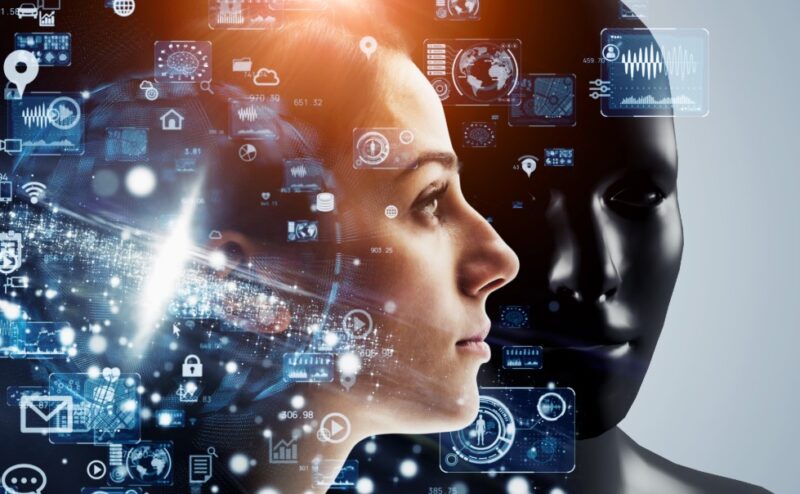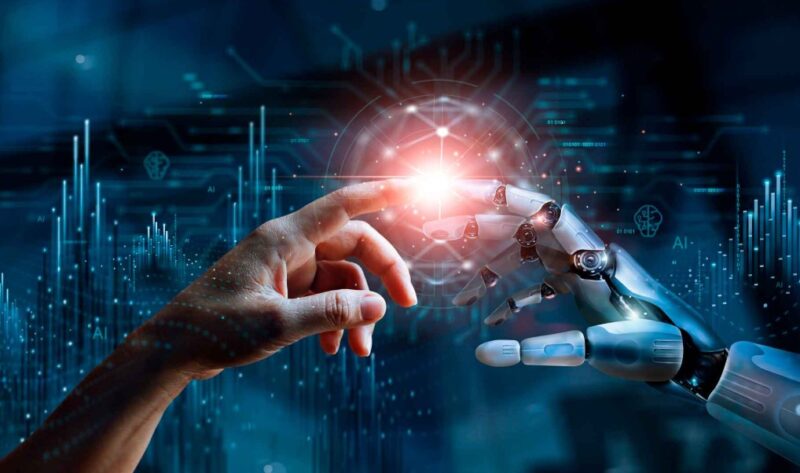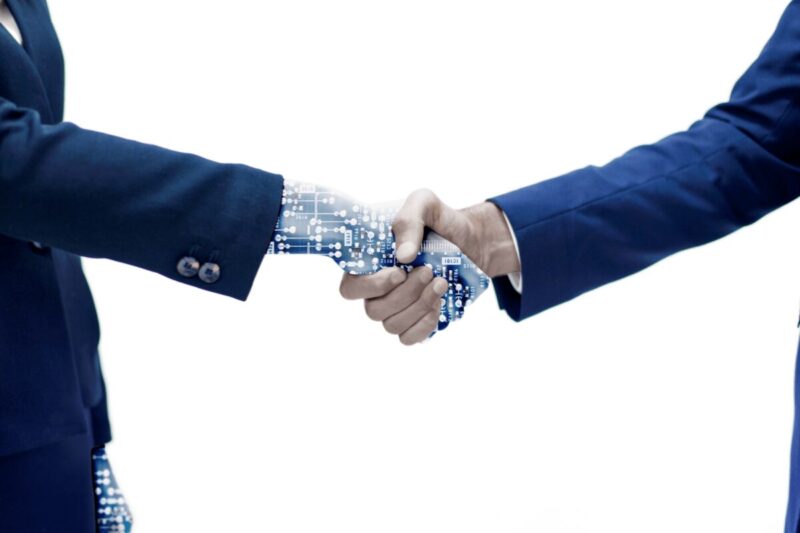As companies adopt innovative solutions to enhance hiring processes, one technology is standing out: Artificial Intelligence. It promises to revolutionize recruitment by making it faster, more accurate, and less biased. But can AI really improve hiring decisions? What are the real benefits, and what potential drawbacks should organizations keep in mind?
The use of AI in recruitment isn’t new. Yet, its growing presence in HR departments across the globe raises questions about its impact on decision-making. Will technology ever truly replace human intuition and judgment in selecting top talent? Or will it remain a tool that HR professionals use to enhance their decisions, not replace them?
1. The Rise of Technology in Recruitment
Over the past few years, companies have increasingly turned to technology to streamline hiring processes. The introduction of artificial intelligence and machine learning algorithms promises greater efficiency, allowing businesses to handle large volumes of applications with ease. Many organizations have adopted AI-driven tools to optimize recruitment processes.
Jeff Smith BlackRock has over 25 years of experience in HR leadership and has worked with CEOs on improving talent acquisition strategies. His innovative approach at BlackRock focused on integrating cutting-edge technology with traditional HR practices, helping to refine recruitment decisions and minimize biases in hiring.
These AI solutions typically focus on areas like resume screening, initial candidate assessments, and even conducting pre-interview tests. However, the rise of technology in hiring isn’t without its complexities. While AI promises speed and precision, it also brings new challenges that HR professionals must address

2. Pros of AI in Hiring ─ Efficiency, Bias Reduction, and Predictive Analytics
Artificial intelligence offers a variety of advantages in the recruitment process, particularly around efficiency and accuracy. Here’s how AI can benefit recruitment:
- Improved Efficiency
AI tools can sift through thousands of resumes in a matter of seconds, far faster than a human recruiter could. By automating the initial stages of candidate screening, companies save valuable time, allowing recruiters to focus on high-priority candidates. - Reduction in Human Bias
One of the most significant advantages of Artificial intelligence is its ability to minimize human bias. Many hiring decisions are influenced by unconscious biases based on factors like gender, age, or ethnicity. AI-driven systems, if designed correctly, can focus solely on the skills and qualifications that matter, leading to more objective hiring decisions. - Predictive Analytics for Better Match
AI-powered tools can predict the likelihood that a candidate will succeed in a particular role. By analyzing past hiring data and comparing it with candidate profiles, AI can make recommendations that align with a company’s needs. Predictive analytics ensures that the hiring process is based on more than just gut feelings, providing data-backed insights. - Consistency and Scalability
AI systems provide consistency in evaluating candidates, ensuring that every individual is assessed by the same criteria. Furthermore, when scaling a business, AI can help handle larger volumes of applications without compromising quality.

3. Challenges and Risks of AI in Recruitment
While AI can bring major benefits, there are challenges and risks involved. These issues highlight the need for caution when relying on technology for hiring decisions.
- Ethical Concerns
AI algorithms are built on historical data, which can reflect past biases. If the data used to train AI systems includes biased decisions, the algorithm may unintentionally perpetuate those biases. This could lead to discrimination against certain groups, which may not be apparent until the system is widely implemented. - Lack of Human Judgment
AI cannot always understand the nuances of a candidate’s personality, motivations, or how they fit into an organization’s culture. While technology can analyze qualifications and experiences, it may miss the subtleties of human interaction that are vital to understanding if a candidate will thrive within a specific team dynamic. - Over-reliance on Technology
AI can’t replicate the emotional intelligence of an experienced HR professional. Relying too heavily on technology in hiring may result in a lack of attention to factors that are harder to quantify, such as attitude, teamwork, and other subjective qualities. - Algorithm Transparency
Many AI systems operate as “black boxes,” meaning their decision-making processes are not always clear. Organizations need to ensure that AI tools are transparent, auditable, and explainable to avoid legal and reputational risks.

4. The Role of Human Judgment in Recruitment Processes
While AI has made significant strides, human judgment remains a crucial element in the hiring process. HR professionals possess emotional intelligence, intuition, and an understanding of organizational culture—qualities that technology simply cannot replace.
Human recruiters can assess a candidate’s potential in ways that go beyond a resume or algorithmic recommendations. They can gauge how a candidate interacts with others, how they communicate, and how their personality fits with the company’s culture.
Some aspects of hiring, such as assessing creativity or leadership qualities, require subjective evaluation. A machine might struggle with reading these more intangible qualities.
Human involvement also ensures that hiring decisions remain ethical and aligned with company values. AI should serve as a supplement to human insight, not a complete replacement for it.
5. Future Outlook ─ Can AI Replace Human Involvement in Hiring?
As AI continues to evolve, its role in recruitment will likely expand. However, it’s unlikely that AI will completely replace human involvement in hiring decisions anytime soon. While technology can assist in handling administrative tasks, AI lacks the ability to replicate the human touch required for building meaningful workplace relationships.
Future improvements in AI may reduce the gaps between human judgment and machine analysis, but an entirely automated hiring process still seems distant. Moreover, as companies embrace AI, they must also focus on educating their HR teams to work effectively with technology.
For now, the best approach may be a hybrid one, where AI handles repetitive tasks while HR professionals make the final decision based on their human insight and experience.

Final Thoughts
AI undoubtedly has the potential to improve hiring decisions by enhancing efficiency, reducing bias, and providing predictive insights. However, technology alone cannot replace the human element of the recruitment process.
As businesses integrate AI into their recruitment practices, they must strike a balance between technology and human judgment. By doing so, companies can leverage the strengths of both, ultimately making better hiring decisions. With responsible implementation, AI can serve as a powerful tool for organizations seeking to build stronger, more diverse teams.
Related Posts:
- 6 Ways Technology Can Improve The Efficiency Of Your…
- Pros And Cons Of Post And Beam Construction - 2024 Guide
- 10 Pros and Cons of Automated Cryptocurrency Trading…
- Pros and Cons of Using Porcelain Stoneware Tiles for…
- Pros and cons of buying stocks during the COVID-19 pandemic
- Live or RNG-Based Online Blackjack Game: Pros and…









